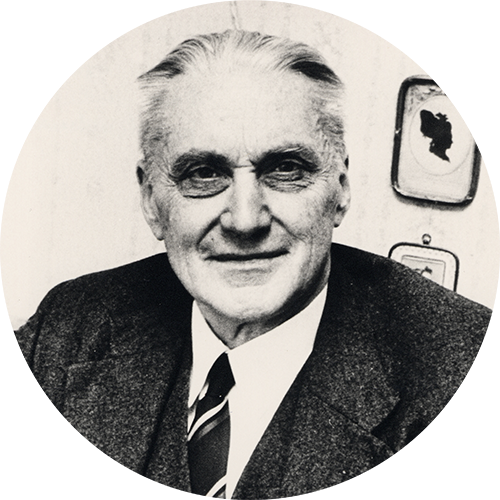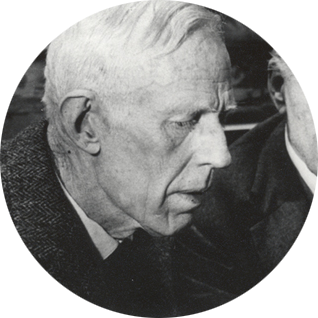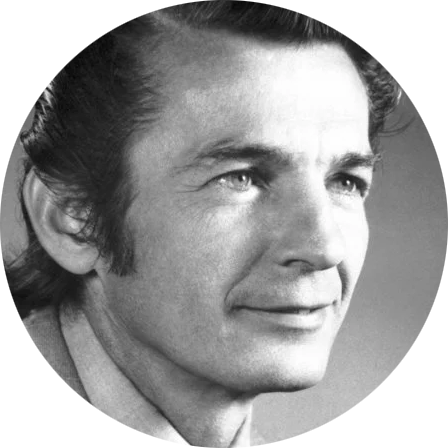Fridtjof Nansen – A scientist and humanitarian extraordinaire

Fridtjof Nansen (1861-1930) was awarded the Nobel Peace Prize in 1922 for his invaluable international efforts in aiding refugees after the First World War.
While widely renowned as an explorer and philanthropist, Nansen also possessed a remarkable talent for scientific research. He contributed groundbreaking theories in neurobiology and oceanography, leaving an indelible mark in these fields. Throughout his lifetime, he additionally ventured into the realms of meteorology and engineering.
Nansen held professorships in both zoology and oceanography at the Royal Frederick University in Kristiania, as UiO was called until 1939. He was in fact elected as the university's rector for the period of 1919-1921, but he never assumed the position.
Ragnar Frisch – From goldsmith apprentice to groundbreaking economist

Ragnar Frisch (1895–1973) delivered numerous groundbreaking works within the field of economics. For these he received the Nobel Memorial Prize in Economic Sciences in 1969, jointly with the Dutch economist Jan Tinbergen.
Originally, Frisch was set to become a goldsmith, following in his father's footsteps. Alongside his apprenticeship, he studied economics because, according to Frisch himself, it was the "shortest and easiest programme" at UiO.
Eventually, he became a lecturer at the university, earned his Ph.D. degree and was appointed as a professor in 1931. In 1932, he founded an institute of social economy at UiO.
During the economic depression of the 1930s, Frisch was one of the first economists to advocate for an active fiscal policy. He later served as an economic expert for organisations such as the United Nations and various developing countries like India and Egypt.
Odd Hassel – a Norwegian chemistry pioneer

Odd Hassel (1897–1981) was awarded the Nobel Prize in Chemistry in 1969, along with Sir Derek H. R. Barton. They received the prize for their contributions to the development and application of the concept of conformation in chemistry.
Hassel was appointed as Norway's first professor of physical chemistry in 1934 and worked in Norway until his passing as a professor emeritus in 1981.
He is the only Norwegian holding only a Norwegian citizenship to have received the Nobel Prize in physics or chemistry.
Odd Hassel was an honorary doctorate recipient from the universities of Copenhagen and Stockholm. He was also a member of both the Royal Norwegian Society of Sciences and Letters and corresponding societies in Sweden and Denmark.
Ivar Gi?ver – the experimental physicist

Norwegian-American Ivar Gi?ver (1929–) was awarded the Nobel Prize in Physics in 1973 for his work in quantum mechanics, specifically related to electron tunneling phenomena. He conducted extensive experimental research in this field. He received the prize jointly with Leo Esaki and Brian D. Josephson.
Gi?ver has later ventured into the field of biophysics, applying physics approaches to solve biological problems.
In 1989, he became a Vista Professor at UiO (University of Oslo), and he also holds an honorary doctorate from the university.
Trygve Haavelmo – a revolutionary Economist

Trygve Haavelmo (1911–1999) was awarded the Nobel Memorial Prize in Economic Sciences in 1989 for his significant contributions to econometrics, a research field within social economics.
Haavelmo introduced methods from mathematical statistics into economic analysis, thereby laying the foundation for an entirely new area of economic research.
He became a professor of social economics and statistics at UiO's Department of Economics in 1948.
Haavelmo also conducted pioneering work in areas such as economics in developing countries and economics from an environmental perspective.